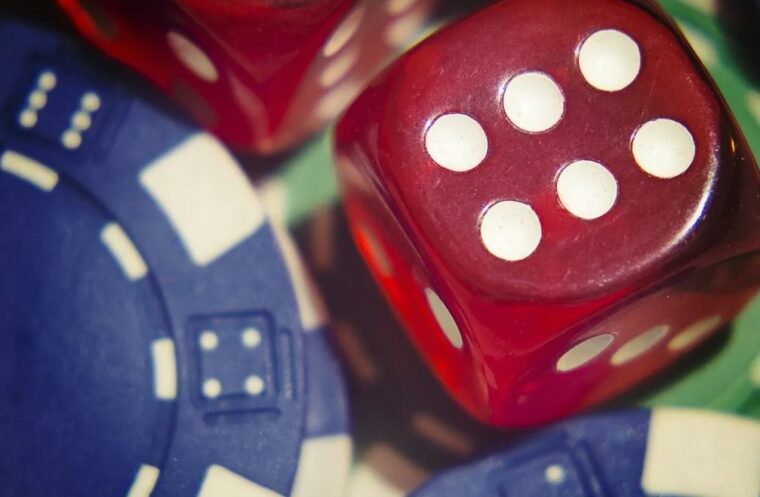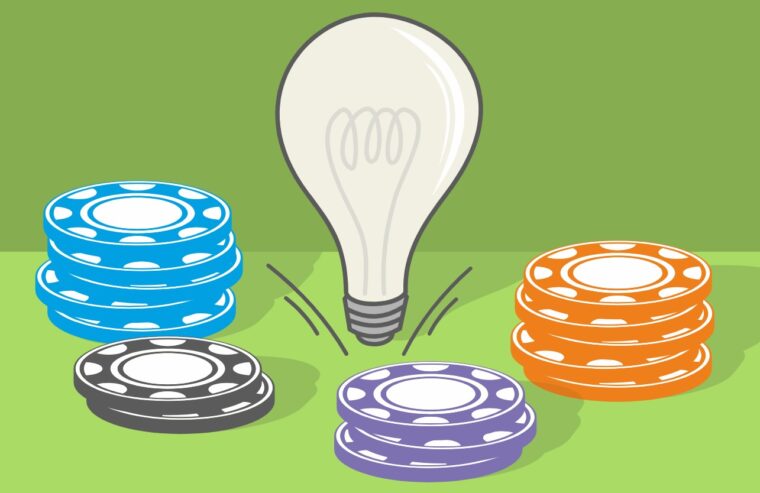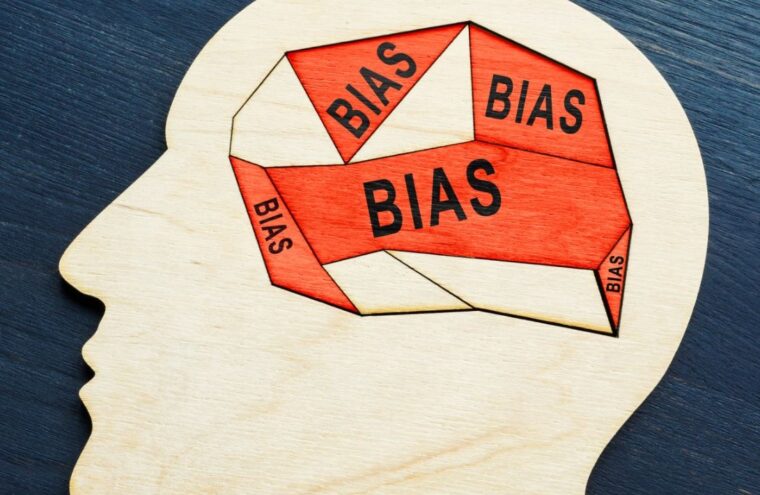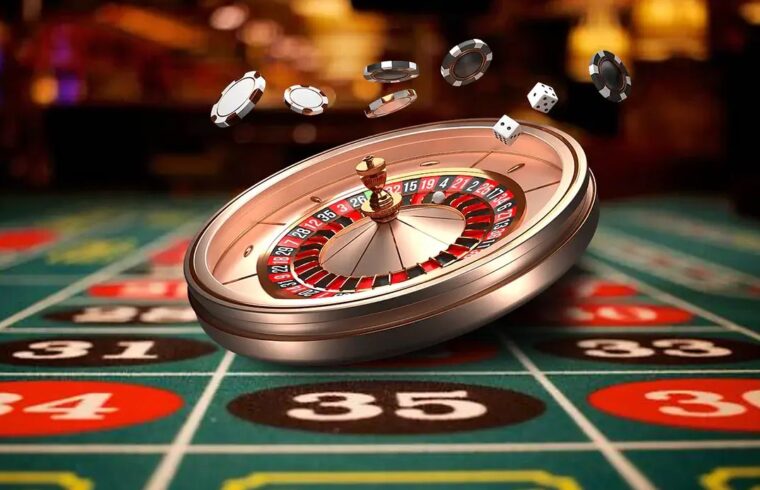Luck—elusive, mysterious, and often unpredictable—is a concept deeply intertwined with gambling.
Many gamblers rely on it, hoping for that stroke of good fortune to turn the tide in their favor. But is luck entirely random, or is there a science behind it? Can you actually improve your odds at the casino tables?
In this blog, we’ll delve into the fascinating world of luck, exploring both the science and strategies that can enhance your gambling experience.
Understanding the Role of Chance
Before we explore strategies to improve your odds, it’s crucial to understand the fundamental role of chance in gambling.
1. Randomness and Probability
At the core of most slot casino games is a mathematical concept known as probability. Probability governs the likelihood of a particular outcome occurring in a game.
For example, in a fair coin toss, there is a 50% probability of it landing heads and a 50% probability of it landing tails.
Casino games are designed with probabilities that favor the house, ensuring the casino’s long-term profitability.
2. The House Edge
Casinos incorporate a built-in advantage called the “house edge” into their games. This edge ensures that, over time, the casino will win more money than it pays out to players. The house edge varies from game to game, with some offering better odds for players than others.
Strategies to Improve Your Gambling Odds

While luck plays a significant role, there are strategies that can help you make more informed decisions and potentially increase your chances of winning.
1. Game Selection
| Game | House Edge |
| Blackjack | 0.5% to 1.5% |
| Baccarat | 1.06% (Banker bet) |
| Roulette | 2.7% to 5.26% |
| Craps (Pass Line) | 1.41% |
| Slot Machines | 2% to 15% |
Choosing the right game can significantly impact your odds. Games like blackjack and baccarat offer lower house edges, making them more favorable for players.
Conversely, slot machines and some roulette variations have higher house edges, making them riskier choices.
2. Bankroll Management
Effective bankroll management is crucial for any gambler. Set a budget for your gambling activities and stick to it.
Avoid chasing losses and know when to walk away, even if luck seems to be on your side. This strategy can help you minimize losses and maximize potential winnings.
3. Learn Basic Strategy
If you’re playing games like slot gacor or blackjack, mastering basic strategy can make a substantial difference.
Basic strategy involves knowing when to hit, stand, double down, or split based on the cards you and the dealer have. By following these guidelines, you can reduce the house edge and improve your odds.
4. Card Counting
Card counting is a strategy specific to blackjack. It involves keeping track of the cards that have been dealt and adjusting your bets based on the likelihood of high or low-value cards remaining in the deck.
While card counting is legal, casinos frown upon it and may ask you to leave if they suspect you’re using this technique.
5. Betting Systems

Betting System |
Description |
| Martingale | Double your bet after each loss |
| Fibonacci | Follow a sequence of numbers to determine bets |
| Paroli | Double your bet after each win |
| Labouchere | Create a betting sequence based on desired win |
Various betting systems have been devised to manage your bets and potentially increase your winnings.
However, it’s important to note that no betting system can overcome the house edge or change the fundamental odds of a game. These systems should be used with caution and a clear understanding of their limitations.
The Psychology of Luck
Gambling is a thrilling experience that can be a lot of fun, but it also involves risk. Luckily, there are ways to increase your odds of winning. These strategies can include defining goals, practicing positive thinking, and engaging in superstitions.
Richard Wiseman, a psychologist, has conducted many experiments on luck. He has found that lucky people notice opportunities, whereas unlucky people miss them.
Luck isn’t just about probabilities and strategies; it also involves the psychology of belief and perception.
1. Positive Thinking
Positive thinking and optimism can influence how you perceive luck. Studies suggest that people who maintain a positive attitude tend to notice and capitalize on opportunities more frequently than those with a negative mindset. This positive outlook can, in turn, enhance your overall gambling experience.
2. Superstitions
Superstitions are ritualistic actions and beliefs that are believed to improve luck or protect against bad luck.
They can include wearing lucky charms, tapping on objects, or carrying certain items. Athletes often engage in these practices, and many famous sports stars are known to have their own lucky shirt or uniform that they like to wear before a game.
Some people also believe in the belief that good luck comes in threes. This is why they will knock on wood to increase their luck or protect themselves against a negative occurrence.
This tradition originated from the pagan belief that good spirits live in the roots of trees, while Christians enculturated it as an act of reverence for Jesus Christ who was crucified on a wooden cross.
Although superstitions may sound silly, they have been shown to improve gambling performance by boosting confidence. However, they should not be taken too seriously and it is important to know when to stop.
3. Confirmation bias

Confirmation bias is a psychological phenomenon where people seek information that supports their existing beliefs, decisions, or desires. It can cause them to ignore or dismiss evidence that contradicts those beliefs.
This can be a dangerous trait in sports gambling where punters are tempted to talk themselves into or out of placing a wager using cherry-picked statistics that may not tell the full story.
Various techniques are available for reducing confirmation bias, which generally revolve around trying to counteract the cognitive mechanisms that promote it in the first place.
Some of these debiasing techniques include making people aware of their tendency to focus on and prefer confirmatory information, ensuring that they give challenging information sufficient consideration, and encouraging them to conduct a valid reasoning process.
Another potential cause of confirmation bias is memory bias, wherein people tend to remember and recall information that reinforces their prior beliefs (e.g., halo effect).
While there are various theories of memory bias, it is generally accepted that people tend to remember striking or important information more readily than less significant or incongruent information.
4. Self-fulfilling prophecies
A self-fulfilling prophecy occurs when a person’s beliefs or expectations lead to results that confirm those expectations. This effect has been studied in a variety of settings, including racial prejudice and discrimination.
For example, a study found that people with racial prejudices were more likely to treat someone of another race in a negative manner, which in turn led to confirmation of the stereotypes they held.
Research on interpersonal self-fulfilling prophecies has produced three kinds of implications. One of the most direct implications is that speculative forecasts can influence economic decision-making, even before they are realized.
In one experiment, a simple message about possible changes in the outcome probabilities of a game of chance had an enduring impact on participants’ decisions.
While some people believe that luck is a result of fate or divine intervention, others think it’s simply a matter of perception. Researchers have also found that people who recognize luck are more attractive to other people and are better team players.
5. Game of chance

Whether you believe in good luck or bad, there is something to be said for making the most of your chances.
Whether it’s rubbing your lucky rabbit’s foot or using a lucky charm, some people believe that they can improve their luck by adopting the right mindset. However, recent research has found that luck has more to do with psychology than probability.
A gambler can increase his or her odds of winning by reducing the house edge, choosing slot online games with better odds, and avoiding certain mistakes such as the near-miss effect. This phenomenon occurs when an outcome differs just a little from a winning one, leading the gambler to believe that she was so close that she should try again.
Richard Wiseman, a psychologist at the University of Hertfordshire in England, has conducted a number of experiments to see what distinguishes lucky people from unlucky ones.
In one study, he asked self-professed lucky and unlucky people to read a newspaper. The lucky group took less than two minutes to count the photos, while the unlucky group took longer.
Conclusion: Balancing Science and Luck
The science of luck in gambling is a fascinating blend of probability, strategy, psychology, and chance.
While it’s impossible to control luck itself, you can certainly influence your gambling experience by making informed choices, managing your bankroll wisely, and understanding the odds of the games you play.
Whether you’re a seasoned gambler or a newcomer to the casino floor, striking the right balance between science and luck can lead to a more enjoyable and potentially rewarding gambling adventure.
Remember, in the world of gambling, it’s not just about being lucky; it’s about making smart choices along the way.
